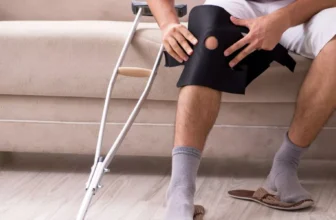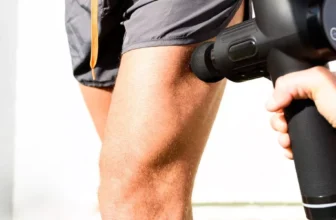
Imagine having a tool that not only tracks your physical activity levels and sleep patterns but also provides real-time insights into your progress during rehab recovery. These wearable devices offer a personalized approach to monitoring your journey, helping you stay accountable and motivated. But how exactly do they achieve this? By seamlessly integrating technology with your rehabilitation process, wearable devices hold the key to unlocking a new level of accountability and progress that you might not have thought possible.
Monitoring Physical Activity Levels
To effectively track your physical activity levels during rehabilitation, consider utilizing wearable devices that offer real-time data and insights. These devices can provide you with valuable information about the intensity and duration of your exercises, helping you optimize your workout routines for better recovery. By wearing a fitness tracker or a smartwatch, you can monitor your steps, distance traveled, and calories burned throughout the day, giving you a comprehensive overview of your activity levels. This data can be crucial in setting realistic goals, tracking your progress, and staying motivated during your rehabilitation journey.
Wearable devices also offer features like heart rate monitoring, which can help you ensure that you're exercising within safe and effective zones. By keeping an eye on your heart rate during workouts, you can adjust the intensity of your exercises accordingly and prevent overexertion. Additionally, many wearable devices come with built-in reminders and notifications to help you stay consistent with your physical activity routine. By leveraging the data and insights provided by these devices, you can enhance your accountability, track your improvements, and make informed decisions to support your rehab recovery.
Tracking Sleep Patterns
Consider utilizing wearable devices that track your sleep patterns to optimize your rehabilitation journey. Monitoring your sleep can provide valuable insights into your recovery process. By wearing a device that tracks your sleep patterns, you can gain a better understanding of the quality and duration of your rest. This data can help you identify patterns, such as frequent awakenings or insufficient sleep, that may be hindering your progress.
Tracking your sleep can also highlight the impact of your daily activities on your rest. For example, you may notice that days with intense physical therapy sessions result in improved sleep quality. On the other hand, stressful situations or late-night activities might lead to disrupted sleep patterns. Being aware of these correlations can empower you to make informed decisions to prioritize activities that support better sleep and ultimately enhance your rehabilitation progress.
Incorporating sleep tracking into your routine allows you to adjust your habits for optimal recovery. With this information at your fingertips, you can work towards establishing healthy sleep patterns that promote healing and overall well-being during your rehabilitation journey.
Analyzing Heart Rate Data
By examining the data on your heart rate, you can gain valuable insights into how your body responds during different activities and periods of rest. Monitoring your heart rate can help you understand the intensity of your workouts and how your body recovers.
For instance, a sudden spike in heart rate during a particular exercise could indicate that it's too strenuous for your current fitness level. On the other hand, observing your heart rate during rest periods can show how well your body is recovering between activities.
By analyzing trends in your heart rate data over time, you can track improvements in your cardiovascular health and fitness levels. This information can guide you in adjusting your workout routines to ensure they're both effective and safe.
With wearable devices providing real-time updates on your heart rate, you can make informed decisions to optimize your rehab recovery journey.
Enhancing Motivation and Compliance
Boost your motivation and commitment to your rehab journey with simple strategies that leverage wearable devices. These devices can provide real-time feedback, track your progress, and set achievable goals, all of which can help keep you motivated and engaged in your recovery process. By seeing your daily activity levels, monitoring your vitals, and receiving reminders to stay active, you're more likely to stay on track with your rehab program.
Wearable devices also promote compliance by making it easier to stick to your prescribed routine. They can send alerts for medication reminders, provide guided exercise routines, and offer incentives for reaching milestones. With these features, you can feel supported and encouraged throughout your rehabilitation journey.
Moreover, the data collected by wearable devices can give you a sense of accomplishment as you witness your improvements over time. This visual representation of your progress serves as a powerful motivator, pushing you to continue working towards your goals. By utilizing wearable technology to enhance motivation and compliance, you can optimize your rehab experience and achieve better outcomes.
Providing Insights to Healthcare Providers
To further enhance your rehabilitation journey, wearable devices can provide valuable insights to healthcare providers regarding your progress and adherence to the prescribed regimen. By continuously monitoring your activity levels, heart rate, sleep patterns, and other relevant metrics, these devices offer real-time data that can give healthcare providers a comprehensive view of your daily habits and progress in rehab.
This information allows healthcare providers to make data-driven decisions, track your improvements over time, and adjust your treatment plan as needed. With access to this detailed information, healthcare providers can personalize your care, identify any potential issues early on, and provide timely interventions to optimize your recovery process.
Additionally, by having a clear understanding of your activity levels and health metrics outside the clinic, healthcare providers can offer tailored guidance, encouragement, and support to help you stay on track and achieve your rehabilitation goals more effectively.




